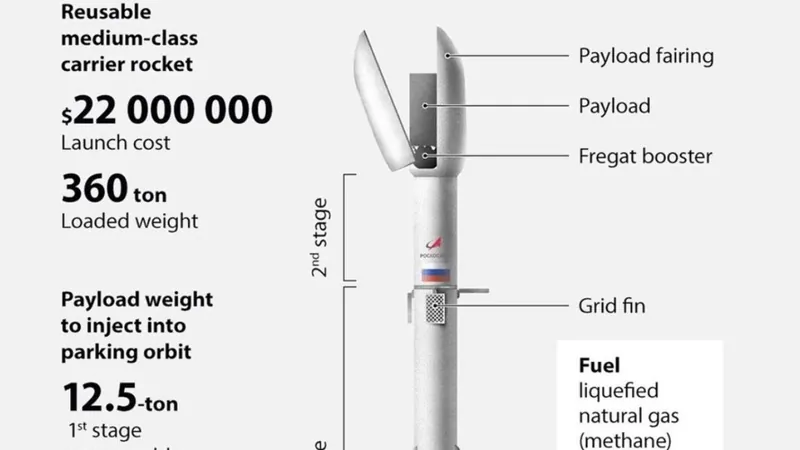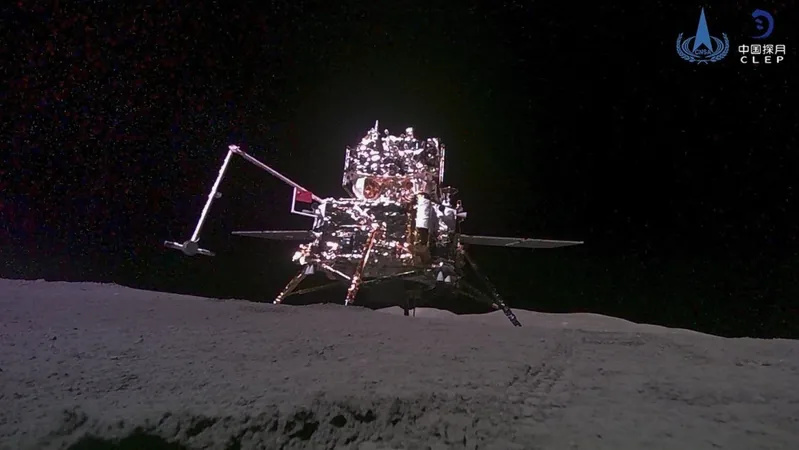
Russia's Bold Leap into Rocket Reusability: The Grasshopper Project Takes Flight!
2024-11-11
Author: Emma
Russia, a historical titan in the space launch sector, has often been seen as lagging behind in the reusable rocket race. For years, the nation dismissed the viability of reusability, with key players in its space agency, Roscosmos, questioning the economic benefits of such advanced technology. In 2016, a high-ranking official from Roscosmos commented, "The economic feasibility of reusable launch systems is not obvious," signaling skepticism about following the footsteps of pioneering companies like SpaceX.
Yet, the tides began to turn in 2017 when SpaceX celebrated a milestone by successfully re-flying the Falcon 9 rocket. Igor Komarov, the then-CEO of Roscosmos, openly congratulated SpaceX, acknowledging the significance of this achievement for the space industry. He hinted at the potential for Russia to explore reusable components.
Fast forward to recent developments in 2023, Roscosmos has revived interest in creating a prototype vehicle that could test the vertical landing capability of a new rocket called the "Amur." This project, colloquially referred to as "Grasshopper," is expected to begin preparations for an experimental test stage next year. According to Igor Pshenichnikov, a deputy director at Roscosmos, this marks a vital step towards achieving reusable rocket technology, with plans to identify an appropriate launch pad for tests.
However, this development highlights Russia’s increasingly precarious position in the global space race. While Russia postpones its reusable ambitions, SpaceX has already stepped into a vastly different landscape, having commenced Grasshopper tests back in 2011 and soaring to new heights with actual rocket recoveries by 2015.
Confusingly, Russia's adoption of the Grasshopper name raises eyebrows. The resemblance to SpaceX's program, originally named from a test vehicle constructed from salvaged parts, may give the impression that these developments are distinctly Russian. But as history shows, imitation often comes from necessity, and Russia is eager to regain its position as a key player in the launch sector.
Add to this the competitive landscape: the European Space Agency is also exploring reusable technology with its Themis program, expected to test by 2025. Meanwhile, several Chinese companies are racing ahead, aiming for the first successful landing of an orbital rocket's first stage in the short term. Moreover, Blue Origin has successfully executed multiple landings of its New Shepard rocket, with their New Glenn rocket launch on the horizon, further establishing the U.S. as a leader in this space age.
In conclusion, while Russia embarks on this ambitious path, it must catch up to the fast-paced world of reusable rocketry. The Grasshopper project may symbolize a renewed commitment to innovation in Russia, but with various competitors edging ahead, the time for Russia to reclaim its throne in space exploration is now or never! Keep an eye on the skies as the race for reusable rockets heats up!









 Brasil (PT)
Brasil (PT)
 Canada (EN)
Canada (EN)
 Chile (ES)
Chile (ES)
 España (ES)
España (ES)
 France (FR)
France (FR)
 Hong Kong (EN)
Hong Kong (EN)
 Italia (IT)
Italia (IT)
 日本 (JA)
日本 (JA)
 Magyarország (HU)
Magyarország (HU)
 Norge (NO)
Norge (NO)
 Polska (PL)
Polska (PL)
 Schweiz (DE)
Schweiz (DE)
 Singapore (EN)
Singapore (EN)
 Sverige (SV)
Sverige (SV)
 Suomi (FI)
Suomi (FI)
 Türkiye (TR)
Türkiye (TR)